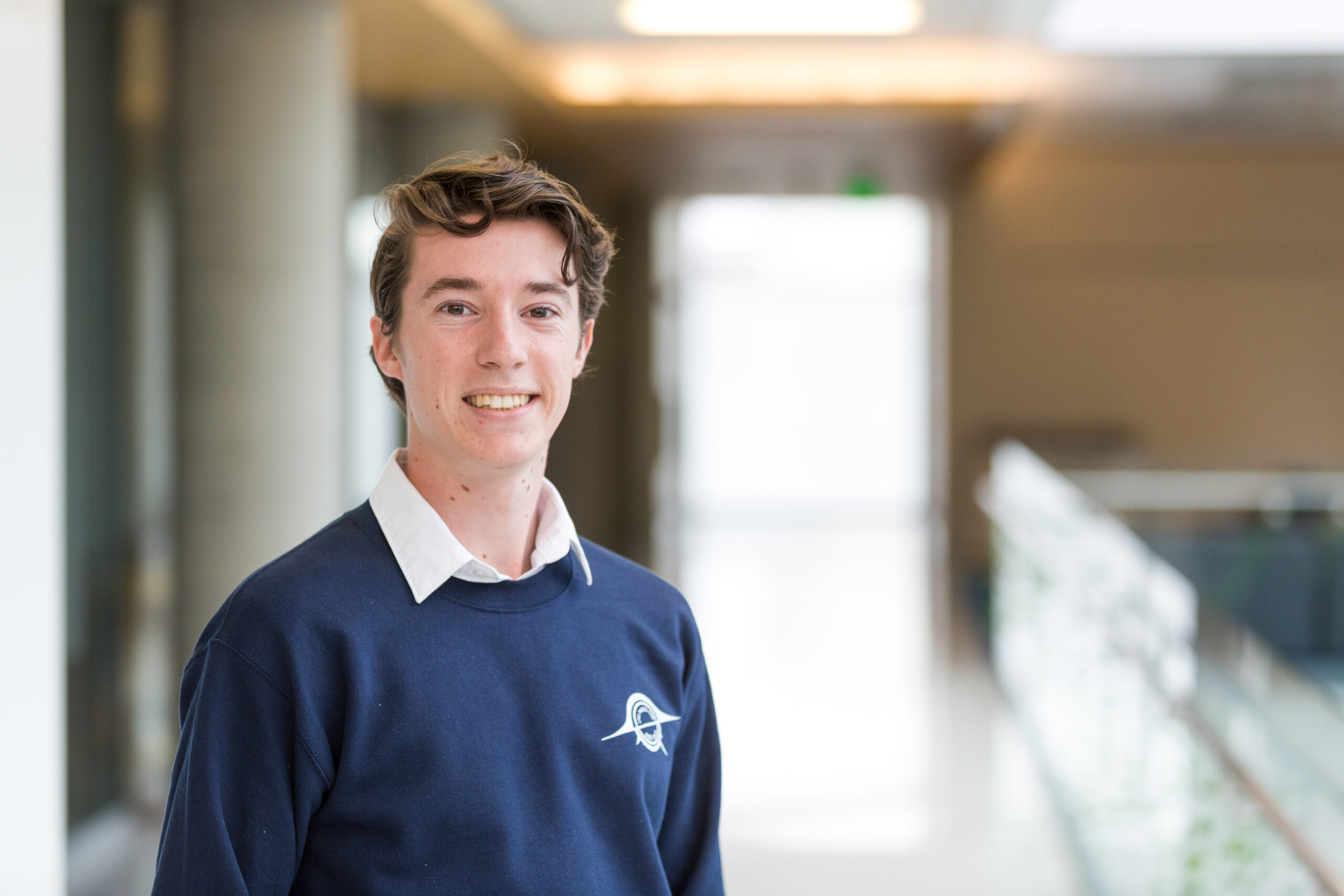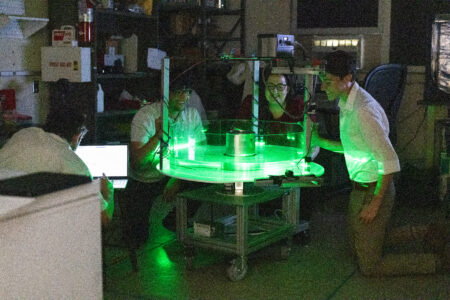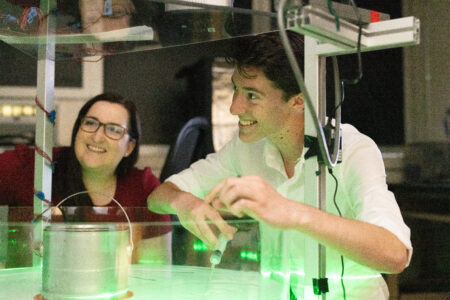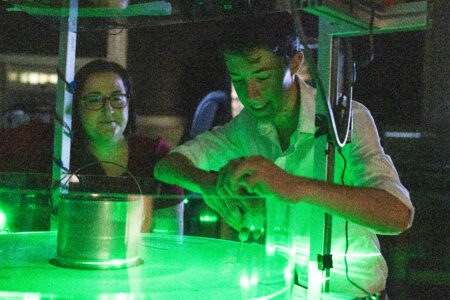
This summer, more than 80 students and faculty made up the Seaver Summer Research Community. The topics ranged from studying anti-fungal properties of plant extracts, to heat transfer properties of different liquids, and more. We connected with some of the students to learn more about their research projects. Today, we spotlight applied physics major Owen Daulton ’26, mentored by Emily Hawkins, assistant professor of physics.

Tell us about the research you’re working on this summer.
My research has focused on physical components and experimental setup for a fluid dynamics project. I have helped with designing and building parts for a state-of-the-art rotating tank, which will simulate the conditions on icy moons of planets in our outer solar system. Eventually we will be able to use the tank along with lasers, glass particles, and computer software in a technique known as “particle image velocimetry”. This will track the ways in which the fluid moves when influenced by temperature gradients, rotation, and salinity.
How does your research relate to other fields?
We are particularly interested in the fluid dynamics of Saturn’s moon Enceladus. This moon has a hot core and frozen surface, with a huge, salty, liquid ocean in between. Scientists believe that its geothermal activity and liquid water could reflect conditions on Earth when life began to form and evolve. If this is true, we would like to know whether microorganisms near predicted hydrothermal vents at the seafloor could be carried to the surface by heat-driven currents- where they might be ejected at cracks in the ice and sampled by spacecraft flybys!

What’s the biggest lesson that you’ve learned from your research?
Teamwork, communication, and student-driven teaching and learning were a big part of my SURP experience and lab time so far.
How does your research compliment your coursework?
Research keeps me focused and interested in physics. I chose my major because I loved the research opportunities within it, and I plan to take full advantage of them. At LMU there are a number of options for different types of physics research, from experimental issues like the fluid dynamics lab, to computational research on black holes or protein structure. Each of these has a coursework counterpart, so any concept in class that sparks your attention can become a research interest as well.
Do you have any advice for someone on the fence about doing research?

I would absolutely recommend undergraduate research to any student, regardless of discipline. I have found the research community on campus to be welcoming, helpful, and full of people who are as interested in new scientific discoveries as I am. Additionally, the physics department is extremely accommodating during the semester, and I don’t feel overworked or burnt out. It’s easy to set a schedule I’m comfortable with and use lab time as an escape from studying!
This is part of a series on summer research students are conducting in Seaver College.
Edited by Noemie Boucher ’25



